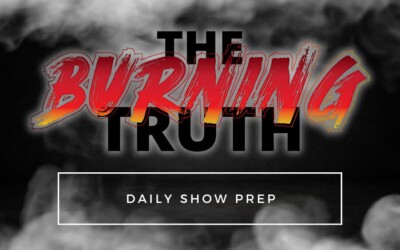GARM Advertising Cartel Shuts Down After Lawsuit: The Ripple Effect on Digital Advertising
The digital advertising landscape has seen significant upheavals, but none as sudden and dramatic as the recent shutdown of the Global Alliance for Responsible Media (GARM) advertising cartel. The shutdown came just 48 hours after a lawsuit was filed by X and Rumble, sending shockwaves through the industry. In this article, we will explore the implications of this shutdown, the potential reasons behind it, and what it means for the future of digital advertising.
Understanding the GARM Advertising Cartel
What is GARM?
GARM, or the Global Alliance for Responsible Media, was an organization formed by major advertisers, media agencies, and platforms to combat harmful content online and ensure brand safety. It aimed to create a safer digital environment by setting industry standards for content moderation and advertising practices.
The Role of GARM in Digital Advertising
GARM played a pivotal role in shaping the digital advertising landscape by promoting responsible media practices. It worked closely with social media platforms, advertisers, and agencies to ensure that advertisements did not appear alongside harmful or inappropriate content.
The Power of an Advertising Cartel
The concept of an advertising cartel is not new, but GARM’s influence was unprecedented. As a collective of some of the biggest names in the industry, GARM had the power to dictate terms to platforms and publishers, significantly influencing how content was moderated and how advertisements were placed.
The Lawsuit That Shook GARM
X and Rumble File a Lawsuit
In a surprising turn of events, social media platforms X and Rumble filed a lawsuit against GARM. The lawsuit alleged that GARM’s practices were anti-competitive and violated antitrust laws by unfairly limiting the advertising opportunities for certain platforms and creators.
Allegations of Bias and Censorship
The lawsuit brought to light accusations that GARM’s content moderation guidelines were biased and led to the censorship of certain viewpoints. X and Rumble argued that these practices were not only unfair but also stifled free speech and innovation in the digital space.
The Legal Grounds of the Lawsuit
The legal grounds for the lawsuit were rooted in antitrust laws, which are designed to prevent monopolistic practices and promote fair competition. X and Rumble argued that GARM’s practices amounted to a form of collusion, where the biggest players in the industry conspired to control the market to their advantage.
The Immediate Aftermath
GARM’s Sudden Shutdown
Just 48 hours after the lawsuit was filed, GARM announced its shutdown. This abrupt decision left many in the industry stunned and raised questions about the organization’s internal workings and the strength of the allegations against it.
The Reactions from the Industry
The shutdown of GARM was met with a mix of reactions. Some industry players expressed relief, viewing GARM’s collapse as a victory for free speech and fair competition. Others, however, were concerned about the vacuum left by GARM’s absence and what it could mean for brand safety and content moderation moving forward.
Impact on Advertisers and Platforms
Advertisers and platforms are now facing a period of uncertainty. GARM’s standards and guidelines had provided a framework for ensuring that ads were placed in a safe environment. Without this framework, brands and platforms may struggle to navigate the complex and ever-changing digital landscape.
The Broader Implications
What Does This Mean for Brand Safety?
Brand safety has always been a top priority for advertisers, and GARM played a crucial role in maintaining it. With GARM gone, there are concerns that the standards for what constitutes a safe environment may become less consistent, leading to potential risks for brands.
The Future of Content Moderation
Content moderation is another area that could be significantly impacted by GARM’s shutdown. GARM’s guidelines were widely adopted by platforms, but without a centralized authority, there may be a lack of uniformity in how content is moderated across different platforms.
The Role of Government Regulation
In the wake of GARM’s shutdown, there is likely to be increased scrutiny from government regulators. There may be calls for more stringent regulations to ensure that digital platforms maintain high standards of content moderation and brand safety without the influence of an advertising cartel.
The Potential for New Alliances
The Rise of New Industry Groups
The collapse of GARM could lead to the formation of new industry groups focused on responsible media practices. These new alliances may take a different approach, emphasizing transparency, fairness, and inclusivity in their guidelines and practices.
Opportunities for Smaller Platforms
The shutdown of GARM could also present new opportunities for smaller platforms. Without the dominance of a large cartel, smaller platforms may have a better chance to compete and attract advertisers who are looking for alternative options.
The Importance of Innovation
Innovation will be key in the post-GARM landscape. Platforms that can develop new and effective ways to ensure brand safety and content moderation without relying on a centralized authority will likely thrive in this new environment.
Conclusion
The shutdown of the GARM advertising cartel marks a significant moment in the history of digital advertising. While it brings challenges, particularly in terms of brand safety and content moderation, it also opens up new opportunities for innovation and fair competition. As the industry adapts to this new reality, it will be crucial for advertisers, platforms, and regulators to work together to create a digital environment that is both safe and competitive.
FAQs
What was GARM?
GARM, or the Global Alliance for Responsible Media, was an organization that aimed to promote responsible media practices by setting standards for content moderation and advertising.
Why did GARM shut down?
GARM shut down just 48 hours after a lawsuit was filed by X and Rumble, which alleged that GARM’s practices were anti-competitive and violated antitrust laws.
What are the implications of GARM’s shutdown?
The shutdown of GARM could lead to challenges in maintaining brand safety and consistent content moderation standards. It also presents new opportunities for smaller platforms and innovation in the industry.
How will this affect digital advertising?
The digital advertising landscape is likely to see increased uncertainty and competition. Advertisers and platforms may need to find new ways to ensure brand safety and navigate content moderation.
What can we expect in the future?
We can expect to see new industry groups forming, increased government regulation, and a greater emphasis on innovation in digital advertising practices.
Written By Wiretap



0 Comments